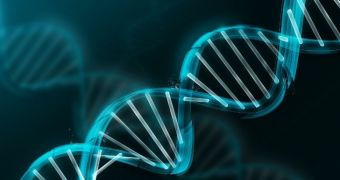A paper published in The Journal of Neuroscience earlier this week documents the engineering of mutant worms whose genetic makeup makes it impossible for them to get drunk regardless of how much alcohol they consume.
The worms, identified as Caenorhabditis elegans, are the creation of brainiacs with The University of Texas at Austin in the US. They owe their inability to become inebriated to something researchers call a modified human alcohol target.
Before folks start scratching their heads and thinking about clicking off this page on account of science-talk overload, it must be said that this modified alcohol target is basically an altered neuronal channel that affects response to alcohol.
Simply put, what the University of Texas did while toying with the genetic makeup of laboratory worms was generate a mutation that works by making the creature's neurons immune to the effects of alcohol intoxication.
Interestingly enough, this was achieved without affecting the worms' neurons ability to stick to their normal working agenda, and without affecting bodily functions such as breathing, excretion, and circulating blood, Eurek Alert informs.
“We got pretty lucky and found a way to make the channel insensitive to alcohol without affecting its normal function. This is the first example of altering a human alcohol target to prevent intoxication in an animal,” says researcher Jon Pierce-Shimomura.
The University of Texas scientists behind this research project expect that, at some point in the future, their work will support the development of better treatment options for at least some of the symptoms associated with alcohol withdrawal.
Besides, they argue that their findings could help prevent alcoholism to begin with by making it impossible for people to get drunk and thus counteracting the alcohol's potentially addictive nature. Still, there is plenty of work to be done.
Thus, before they move on to attempting to use this genetic engineering technique to prevent or treat alcoholism in people, the researchers must first roll out clinical trials involving animals such as mice, which are a tad more similar to humans.
“Our findings provide exciting evidence that future pharmaceuticals might aim at this portion of the alcohol target to prevent problems in alcohol abuse disorders. However, it remains to be seen which aspects of these disorders would benefit,” Jon Pierce-Shimomura explains.
As detailed in The Journal of Neuroscience, trying to counter the effects of alcohol on living organisms is a wee more difficult than attempting to fight back the effects of other potentially addictive substances such as cocaine. This is because alcohol has complex effects on the body.

 14 DAY TRIAL //
14 DAY TRIAL //